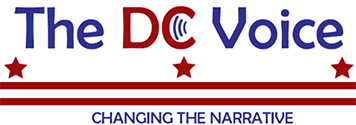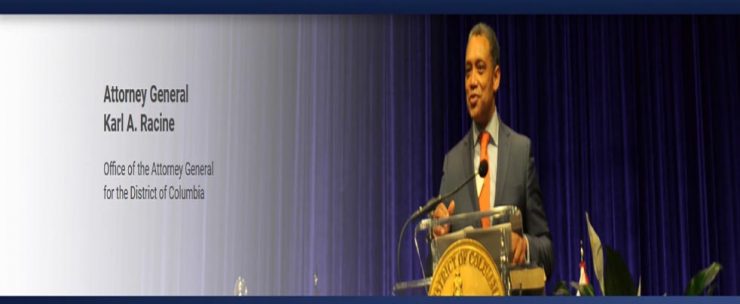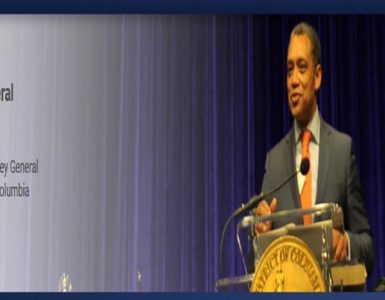September 26, 2019
Statement of Karl A. Racine
Attorney General of the District of Columbia Office of the Attorney General
Before the
The Subcommittee on Workforce Protections
United States House of Representatives
Public Hearing
Misclassification of Employees: Examining the Costs to Workers, Businesses, and the Economy
September 26, 2019
Time 10:15am
Rayburn House Office Building 2175
Good morning Chairwoman Adams and Ranking member Byrne. I am Karl Racine, Attorney General for the District of Columbia. I am here today to testify in support of the “Payroll Fraud Prevention Act” which would make it a violation of the Fair Labor Standards Act (FLSA) for employers to engage in worker misclassification. I have made it one of my top priorities to protect workers’ rights in the District—including workers’ rights to fair wages, overtime pay, and paid sick leave—and to create economic opportunity for all our residents.
My office has implemented a broad effort to protect District workers through enforcing the District’s wage laws to fight wage theft. Wage theft is the illegal practice of denying workers’ wages or benefits they have earned, and can occur in multiple forms, such as failing to pay the required minimum wage, refusing to pay overtime, or misclassifying employees as independent contractors. Wage theft affects millions of workers nationally and happens across all job types and income levels, though low-wage and immigrant workers are especially vulnerable. Through enforcing the District’s wage laws, we have learned specifically about how worker misclassification harms workers on the ground, and we are grateful for the opportunity to share our experience with the Subcommittee on Workforce Protections.
Worker misclassification is a type of payroll fraud. In its most common form, worker misclassification occurs when an employer classifies a worker—who should be considered an employee—as an “independent contractor.” Companies do this in order to unlawfully cut their payroll costs. This illegal behavior creates a ripple effect of harms, stretching from workers to the entire industry, and on to taxpayers and the government itself.
First, misclassification harms workers. Misclassification should be understood as a form of wage theft because it deprives these employees of money they have earned. For example, misclassified workers are routinely shorted on overtime pay. In addition, while employers and employees normally pay an equal share of Social Security and Medicare taxes, a misclassifying employer shifts their own tax burden to the worker. This leaves misclassified workers footing their employer’s tax bill, cutting further into their take-home pay. Misclassified workers are especially harmed in states and territories, like the District of Columbia, that have strong wage laws. For example, a misclassified District worker would not be able to access the District’s $14.00 minimum wage (increasing to $15.00 next year), guaranteed overtime pay, or the provision of paid sick leave. In taking a hard look at this issue, my office has found that worker misclassification is rampant, particularly in the District’s construction industry. The victims are often vulnerable low-wage workers who may not fully understand their rights under District law or how to seek relief for misclassification violations and other wage violations that flow from it.
Second, the harms from worker misclassification extend to the overall industry where such misclassification is occurring. This is particularly true in the construction industry, where work is often awarded through a bidding process. A misclassifying employer is often able to underbid its competitors by illegally evading costs associated with payroll–which include Social Security and Medicare taxes, local payroll taxes such as the District’s unemployment insurance tax, and other payroll-related costs such as workers’ compensation insurance premiums. An unscrupulous employer that wins business by misclassifying workers is stealing business from law-abiding companies that play by the rules. Even worse, they could kick off a race-to-the-bottom, where other companies looking to make a quick buck follow suit. We simply cannot let an unlawful practice become an industry norm.
Third, misclassification harms the government and taxpayers. Both the federal government and the District depend on payroll taxes to administer social benefit programs that serve the public. The federal government administers the Social Security and Medicare programs that serve senior citizens, and the District administers a local unemployment benefits program to assist workers who find themselves out of work through no fault of their own. All employers are required by law to pay into these programs in order to support our fellow citizens. But when employers misclassify workers, they don’t pay their fair share into these programs. They are shorting the public and pocketing the difference.
In fact, my office recently commissioned an economic report that examined just how much worker misclassification can unlawfully cut costs for companies in the District’s construction industry. The researchers found that by misclassifying workers, a company could illegally reduce its labor costs by at least 16.7 percent; 11.5 percent comes from reduced worker take-home earnings and 5.2 percent comes from lost tax and social insurance payments. Put another way, assume an employer has $100 in labor costs associated with an employee. If that employer misclassifies that worker, the employer can unlawfully save $16.70 in labor costs. Of this amount, $11.50 reflects lost worker take-home earnings and $5.20 reflects lost tax and social insurance payments.
This 16.7 percent unlawful cost savings was a conservative, baseline estimate. For example, misclassified workers often experience other forms of wage theft, such as working unpaid hours “off the clock.” And if a misclassified worker experienced wage theft such that their hourly rate was only 90% of their properly classified peers, the illegal cost savings would increase to 27 percent. Similarly, misclassified workers also frequently do not receive benefits provided to their properly classified peers, such as health insurance. If a misclassifying employer doesn’t pass through the value of any of these typical benefits to misclassified workers, the illegal cost savings jumps to 48 percent.
To close, our experience enforcing worker misclassification in the District has taught us that it causes a harm that is concentric—it begins at the worker, and radiates out to the industry and the public fisc. Stopping worker misclassification therefore not only protects workers; it also protects fair competition and government benefits programs that serve taxpayers. I am therefore encouraged that the proposed Payroll Fraud Prevention Act seeks to punish and deter worker misclassification by not only making the practice a violation of the FLSA, but also increasing damages available to workers and imposing monetary penalties on companies who engage in this unlawful behavior. In our experience enforcing local District laws, we have found that increased damages and penalties are invaluable in enforcing and deterring worker misclassification. I appreciate the opportunity to testify on this important issue and look forward to continuing to work with the Subcommittee and its partners on laws and policies that advance workers’ rights. I am available to answer any questions that members of the Subcommittee may have.
Content retrieved from: https://oag.dc.gov/release/testimony-worker-misclassification-and-payroll.


















Add comment